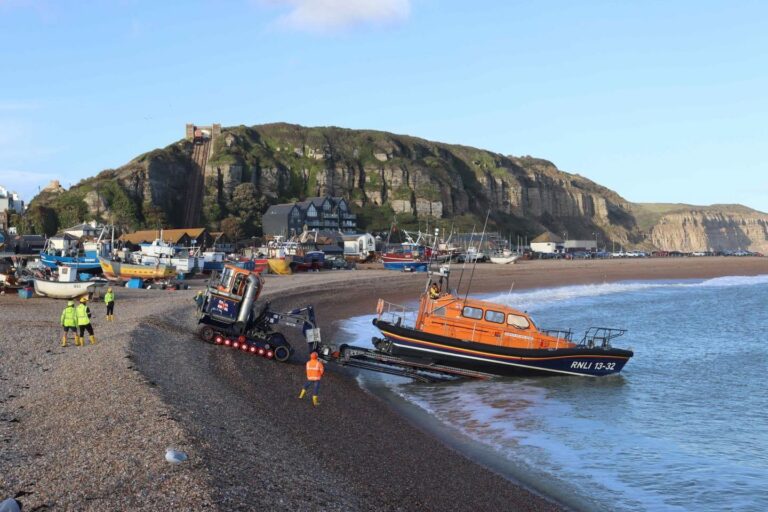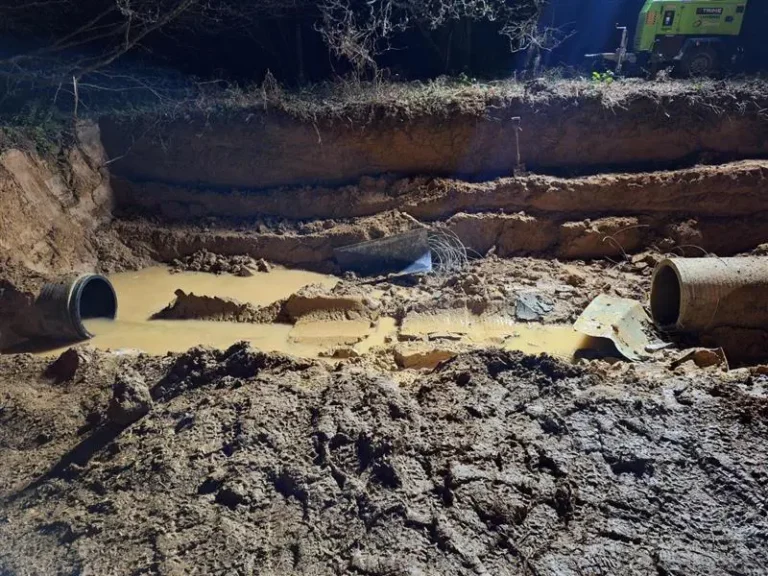Hastings is set to receive a new Mk 4 Atlantic 85 class inshore lifeboat in 2027 as part of a nationwide strategy by the RNLI to adapt its fleet to changing rescue needs.
The new lifeboat will replace the current Shannon class all-weather vessel, Richard and Caroline Colton, which has been operating from Hastings since 2018. The change reflects a shift in demand for rescues, with more incidents now taking place close to shore as sea users increasingly take part in recreational activities such as paddleboarding and open water swimming.
Craig Maltby, RNLI area operations manager, said:
“We are committed to supporting Hastings through this change. We are confident the Mk 4 Atlantic class lifeboat is the most suitable asset to serve this area of the coastline. We acknowledge the generosity of the local community at Hastings, for which we are incredibly grateful. We hope that their support will continue as we adapt our lifeboats around the coast of the UK and Ireland to the changing nature of lifesaving.”
The Atlantic Mk 4 has been designed to enhance the capabilities of the RNLI’s inshore fleet. It can operate close to cliffs and rocks and is capable of handling near-gale force conditions – up to force 7 in daylight and force 6 at night. The vessel also offers improved safety and support for both crew and casualties.
The change in Hastings is part of a wider RNLI lifeboat fleet strategy being rolled out in 2026 and 2027. Out of 238 lifeboat stations around the UK and Ireland, 20 will see changes to ensure the right vessels are placed in the areas of greatest need. Alongside Hastings, lifeboat stations at Ilfracombe and Lytham St Annes will also transition from a Shannon to an Atlantic 85.
Peter Sparkes, RNLI Chief Executive, said:
“For over 200 years, the RNLI has been a charity with a simple mission – to save lives at sea. Clear evidence shows the nature of lifesaving is changing, at a time when demand for our vital service is increasing. We must respond to this.
“If the RNLI is going to save even more lives, our lifeboat and lifeguard services must continue to adapt to these changing needs. We have a responsibility to spend our donors’ money where it will best meet the evolving demand. Our lifeboat fleet strategy ensures that the decisions we make today will set us on a sustainable trajectory, providing a future-fit, safe, and effective lifesaving service.”
The RNLI stressed that the new fleet strategy is not about individual stations but ensuring the charity’s overall configuration of lifeboats best matches current and future demand.













Add your first comment to this post